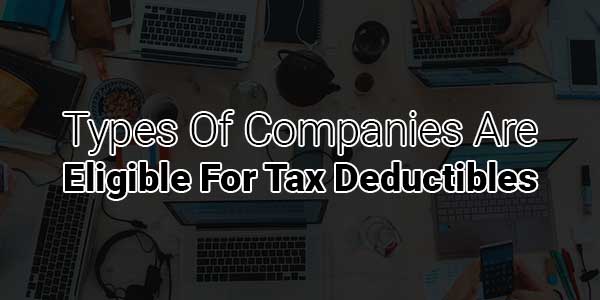
If you are looking to start a business the main thing you should do is look up what structure suits your needs the most. Your location also matters as every state has its own rules, limitations, and regulations, and some types of companies may not be allowed. You are eligible for tax deductibles if your business has income that is reported on your personal tax return. Here are six types of companies that fit that bill.
Table of Contents
Limited Liability Companies:
A limited liability company is a type in which you, as an owner, have no responsibility for its liabilities, you are only responsible for the amount that you invested in it. If you are thinking of forming an LLC, you need to inform yourself about what you get and what you give. Mostly, you get to distance yourself and your personal property from the possible debt or lawsuits that can be directed at your company. The type of paperwork that you need to submit is different from the one that you submit if you own a corporation. The tax deduction that can be awarded for this type of company is for the expenses of business traveling or the education of the employees.
S Corporations:
The difference between an S corporation and a limited liability company is that if you own a former you will get taxed as if you own a partnership. The term signifies “small business corporation”. You have the same protection, but owning an S corporation will limit some of your options, for example, you as an owner have to be a legal citizen or permanent resident of the US and there are more strict administration requirements and regulations. For S corporations, the costs of rent, advertising, employee benefits can be deducted, and loss of income is deducted from shareholders.
Sole Proprietorships:
A sole proprietorship means that the owner is not detached from the business entity. The monetary paths of the company are reported on their personal tax report. It is important to indicate that just because it is called a sole proprietorship it doesn’t mean that the owner is unable to employ other people. If the company has any debt, the owner is required to pay it off out of their own pocket. The benefit of this type of business structure is that, because of the owner’s attachment to the business, the cost of their and their close families’ health insurance can be deducted.

General Partnerships:
General partnerships are founded on the idea of the shared responsibilities of the partners. Partners settle on the mutually approved agreement and every one of them is liable for the company’s income and is obliged to report it on their personal tax report. Every party owns the same percentage of company ownership. The expenses that can be deducted are those made on behalf of the company. For example, you could get a deduction on the expenses made for the use of personal properties and tools used for business purposes.
Limited Liability Partnerships:
A limited liability partnership differs from a general partnership in the sense that each partner owns the part in which they have invested and their liability is protected from the actions of other partners or the employees. The liability differs in each state, so you should check the rules that are set in yours before you decide on it. The taxation of the company is reported in the same way as in a general partnership. In this case, the partners can sometimes get a tax deduction of 20% of what they invested.
C Corporations:
With a C corp, the taxing of your corporation is separated from your personal taxation. It is one of the most complicated structures to start and maintain. C corporations have outside investors and shareholders, and, because of that, you have the option to do your business overseas. They are subjected to double taxation, which means that you will have to pay state, federal, and sometimes local taxes. You have the option to get a deduction on your company’s fringe benefits, like your employee’s salary, private healthcare, or company property like company cars, and others.
Final Word:
Opening a company is stressful on its own, without the additional difficulties of taxing. When thinking about your business model and what type of company is the most suitable, consult with your accountant and find out what benefits you get from each one. Get yourself acquainted with the intricacies of possible tax deductions, so that you can lower your personal spending and investments in your company as much as you possibly can. By doing this, you will get more options opened for providing for the other parts more necessary for your business expansion.














I am very happy to read your post, please also write about the long tail keyword.
Welcome here and thanks for reading our article and sharing your view. This will be very helpful to us to let us motivate to provide you more awesome and valuable content from a different mind. Thanks for reading this article.
This article is very essential for me. Thank you very much for serving such kind of article.
Welcome here and thanks for reading our article and sharing your view. This will be very helpful to us to let us motivate to provide you more awesome and valuable content from a different mind. Thanks for reading this article.